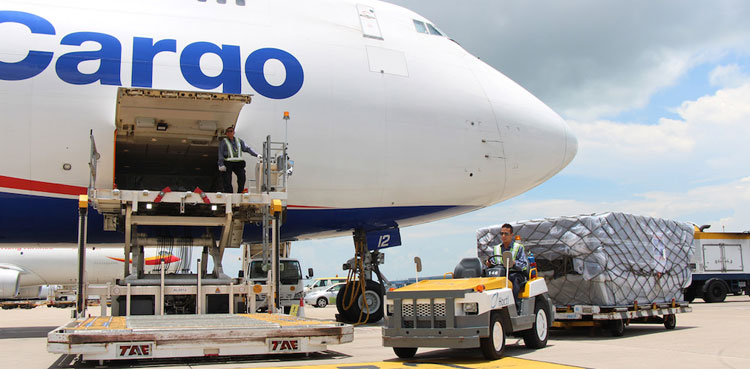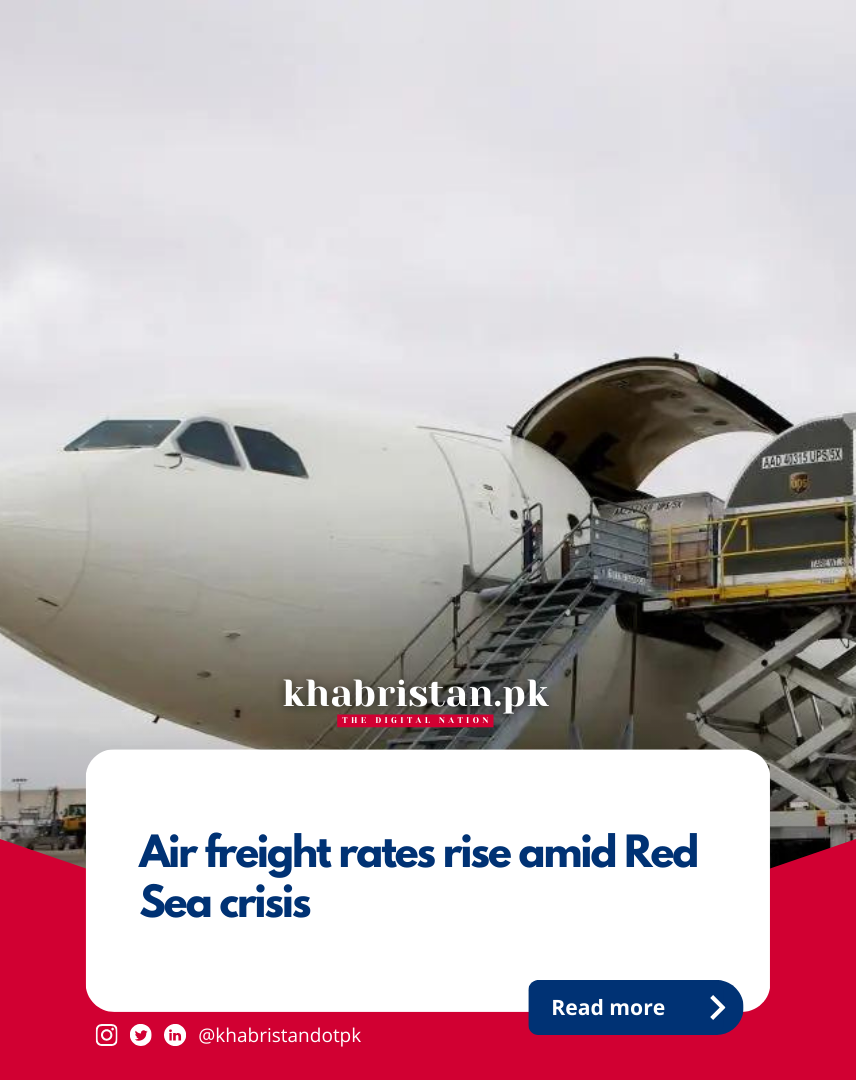Global air freight rates have risen due to the Red Sea crisis, with increased demand ahead of Asia’s lunar new year and disruptions to ocean shipping. Factories in China closing for the holiday have pushed companies to secure costlier air cargo space. The crisis has led to longer transit times and prompted some customers to move to air freight

Global air freight rates have climbed for the first time in seven weeks ahead of Asia’s lunar new year and as attacks on Red Sea shipping prompt companies to secure costlier air cargo space.
The Baltic Air Freight Index, which shows general cargo weekly transactional rates across a number of routes, rose 6.4% in the week to Monday, price reporting agency TAC Index said, reversing declines since a mid-December seasonal peak.
Attacks by Yemen’s Iran-aligned Houthi group on vessels in the Red Sea, launched to express solidarity with Palestinians in Gaza, have forced shippers to take longer routes that can add weeks to delivery times.
“The increase is in line with expectations that rates may spike following disruption to ocean shipping in the Red Sea, though sources also point out that rates often rise in the run-up to Chinese New Year,” TAC Index said.
Many factories in China close for the 8-day holiday which begins this year on Feb. 10 and companies push to get stock out to customers ahead of this.
Air freight rates out of Shanghai rose 8.8% week on week on Monday, led by big increases to Europe. Rates out of Hong Kong gained 5.9% and rates out of Southeast Asia jumped 10%.
The Red Sea, which leads to the Suez canal, lies on the key east-west trade route from Asia’s manufacturing hubs to Europe and then on to the east coast of the Americas.
In recent weeks freight companies have been securing more air cargo space and some customers have begun shipping goods wholly or partially by air to avoid delays.
However air freight prices had remained relatively stable as the shipping crisis coincided with a post-Christmas lull in demand.
Nick Frank, CEO of DHL Global Forwarding Asia Pacific, said an expected traditional peak before the Lunar New Year was meeting longer sea transit times, higher sea rates and a shortage of vessels as a result of the Red Sea disruption. This in turn is prompting some customers to move to air freight, he said.
“Some are also shipping more due to the longer transit time, so they are moving stocks that are scheduled for later,” Frank added.
Global Air freight rates have been on a downward trend since early 2022 from all-time highs during the pandemic. The Baltic Air Freight Index was down around 24% year on year on Monday.
Air freight, more costly than sea freight, represents less than 1% of global trade by volume, according to airline industry association IATA.
The global economy faces a new challenge as air freight rates soar due to the ongoing crisis in the Red Sea region. The disruption in the supply chain has prompted a surge in transportation costs, impacting businesses worldwide. This unforeseen development requires a strategic approach to mitigate its effects and ensure continued operations.
The escalation of air freight rates is a direct consequence of the instability in the Red Sea area, where geopolitical tensions and security concerns have led to significant disruptions in maritime trade routes. As a result, businesses relying on efficient and cost-effective air freight services are grappling with the sudden surge in transportation expenses, which threatens to affect their bottom line.
In light of these developments, industry players must promptly strategize to navigate through these turbulent times. Proactive measures such as revisiting logistics and transportation strategies, exploring alternative routes, and leveraging technology to optimize supply chain efficiency are imperative. Collaboration with logistics partners and industry experts can provide valuable insights into managing cost implications and ensuring seamless operations.
Moreover, businesses need to closely monitor the evolving situation in the Red Sea region and stay informed about the potential impact on air freight operations. Adaptability and flexibility in logistics planning are essential to respond to dynamic market conditions and maintain a competitive edge amidst rising costs.
While the current scenario poses significant challenges, it also presents an opportunity for businesses to reevaluate their supply chain resilience and enhance their preparedness for unforeseen disruptions. By prioritizing agility and foresight, organizations can navigate the impact of rising air freight rates amid the Red Sea crisis, safeguarding their operations and sustaining their global connectivity.
As the situation continues to evolve, it is crucial for businesses to stay vigilant, adapt swiftly, and collaborate effectively to mitigate the effects of escalating air freight rates. By proactively addressing these challenges, organizations can position themselves for long-term success in an ever-changing global landscape.
Source: ARY NEWS
Air freight rates have surged amid the Red Sea crisis and the upcoming lunar new year in Asia. The Baltic Air Freight Index has risen 6.4%, reversing previous declines. Attacks on vessels in the Red Sea have led to longer delivery times, prompting companies to secure costlier air cargo space. With the Chinese New Year approaching, factories in China are closing, driving the push to get stock out to customers. As a result, air freight rates out of Shanghai, Hong Kong, and Southeast Asia have seen significant increases. The disruption in the Red Sea has also led to a shortage of vessels, prompting some customers to move to air freight.
Disclaimer:
This content is AI-generated using IFTTT AI Content Creator. While we strive for accuracy, it’s a tool for rapid updates. We’re committed to filtering information, not reproducing or endorsing misinformation. – Khabristan.pk for more information visit privacy policy








Leave a Comment